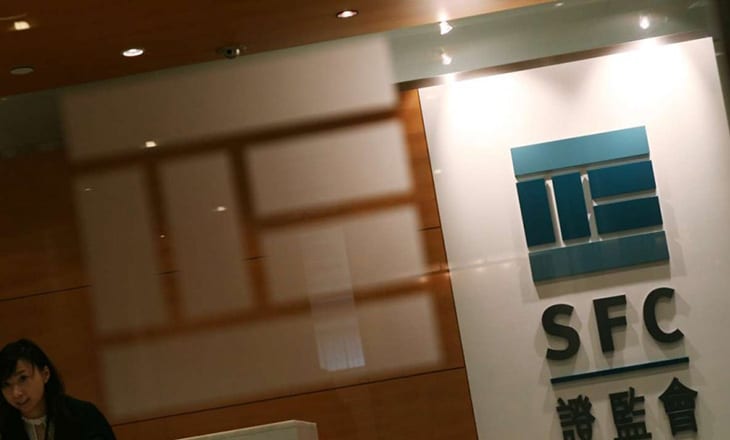The Securities and Futures Commission (SFC) today issued a statement on existing regulations which could be applicable to initial coin offerings (ICOs).
Today’s statement explains that depending on the facts and circumstances of an ICO, digital tokens that are offered or sold may be “securities” as defined in the Securities and Futures Ordinance, and accordingly subject to the securities laws of Hong Kong.
ICOs typically involve the issuance of digital tokens, created and disseminated using distributed ledger or blockchain technology. Whilst digital tokens offered in typical ICOs are usually characterised as a “virtual commodity”, the SFC has observed that certain ICOs have terms and features that may mean that the digital tokens are “securities”.
Where the digital tokens involved in an ICO fall under the definition of “securities”, dealing in or advising on such digital tokens, or managing or marketing a fund investing in them, may constitute a regulated activity. Parties engaging in a regulated activity targeting the Hong Kong public are required to be licensed by or registered with the SFC, irrespective of where they are located.
We are concerned about an increase in the use of ICOs to raise funds in Hong Kong and elsewhere,” said Ms Julia Leung, the SFC’s Executive Director of Intermediaries. “Those involved in an ICO need to be aware that some ICO structures may be subject to Hong Kong securities laws.
The SFC urges investors to be mindful of potential scams as well as the investment risks involved in ICOs. As ICOs operate online and may not have a presence in Hong Kong, investors may be exposed to heightened risks of fraud.
The statement reads as follows:
Offering of securities
ICOs typically involve the issuance of digital tokens, created and disseminated using distributed ledger or blockchain technology. ICO scheme operators may promise buyers of digital tokens that the proceeds of an ICO will be used to fund development of a digital platform or related software which the token holders can subsequently access. Some token holders expect to make a return on their investment by reselling on the cryptocurrency exchanges. Whilst digital tokens offered in typical ICOs are usually characterised as a “virtual commodity”, the SFC has observed more recently that certain ICOs have terms and features that may mean that they are “securities”.
Where digital tokens offered in an ICO represent equity or ownership interests in a corporation, these tokens may be regarded as “shares”. For example, token holders may be given shareholders’ rights, such as the right to receive dividends and the right to participate in the distribution of the corporation’s surplus assets upon winding up.
Where digital tokens are used to create or to acknowledge a debt or liability owed by the issuer, they may be considered as a “debenture”. For example, an issuer may repay token holders the principal of their investment on a fixed date or upon redemption, with interest paid to token holders.
If token proceeds are managed collectively by the ICO scheme operator to invest in projects with an aim to enable token holders to participate in a share of the returns provided by the project, the digital tokens may be regarded as an interest in a “collective investment scheme” (CIS).
Shares, debentures and interests in a CIS are all regarded as “securities”.
Engaging in regulated activities
Where the digital tokens involved in an ICO fall under the definition of “securities”, dealing in or advising on the digital tokens, or managing or marketing a fund investing in such digital tokens, may constitute a “regulated activity”. Parties engaging in a “regulated activity” are required to be licensed by or registered with the SFC irrespective of whether the parties involved are located in Hong Kong, so long as such business activities target the Hong Kong public.
Where an ICO involves an offer to the Hong Kong public to acquire “securities” or participate in a CIS, registration or authorisation requirements under the law may be triggered unless an exemption applies. Parties engaging in the secondary trading of such tokens (eg, on cryptocurrency exchanges) may also be subject to the SFC’s licensing and conduct requirements. Certain requirements relating to automated trading services and recognised exchange companies may be applicable to the business activities of cryptocurrency exchanges.
Cautionary statement
As the terms and features of ICOs may differ in each case, parties engaging in ICO activities are reminded to seek legal or other professional advice if they are in doubt about the applicable legal and regulatory requirements.
As digital tokens involved in ICOs are transacted or held on an anonymous basis, by their nature they pose inherent and significant money laundering and terrorist financing risks. The SFC reminded licensed corporations and associated entities in its 16 Jan 2014 circular to take all reasonable measures to ensure that proper safeguards exist to mitigate these risks.
Investors should also be mindful of the potential risks involved in ICOs and investment arrangements involving digital tokens. As these arrangements and the parties involved operate online and may not be regulated, investors may be exposed to heightened risks of fraud. Digital tokens traded on a secondary market may give rise to risks of insufficient liquidity or volatile and opaque pricing. Investors should fully understand the features of any products or business projects they intend to invest in, and carefully weigh the risks against the return before making an investment.
